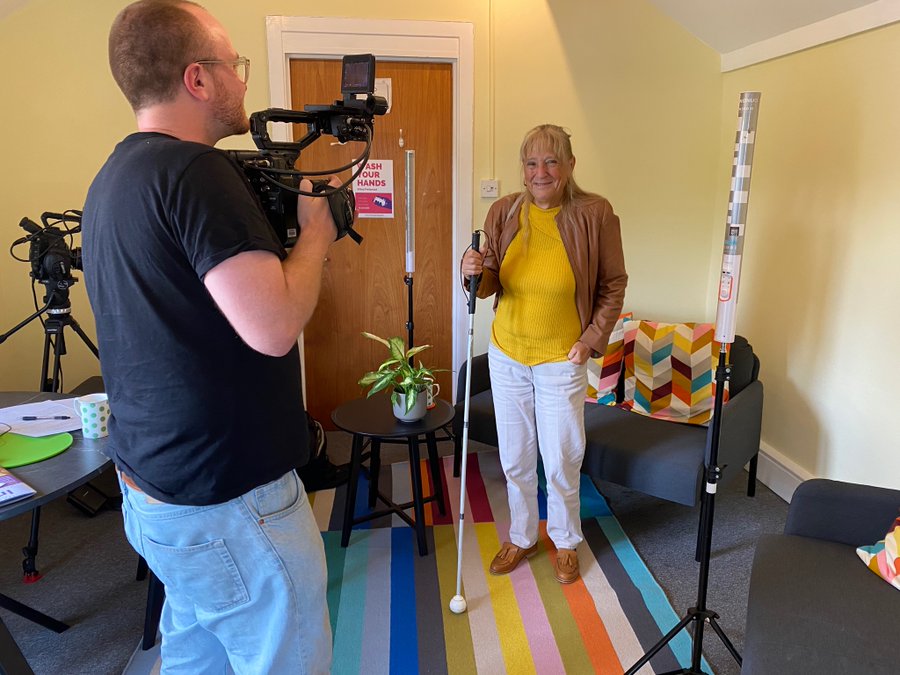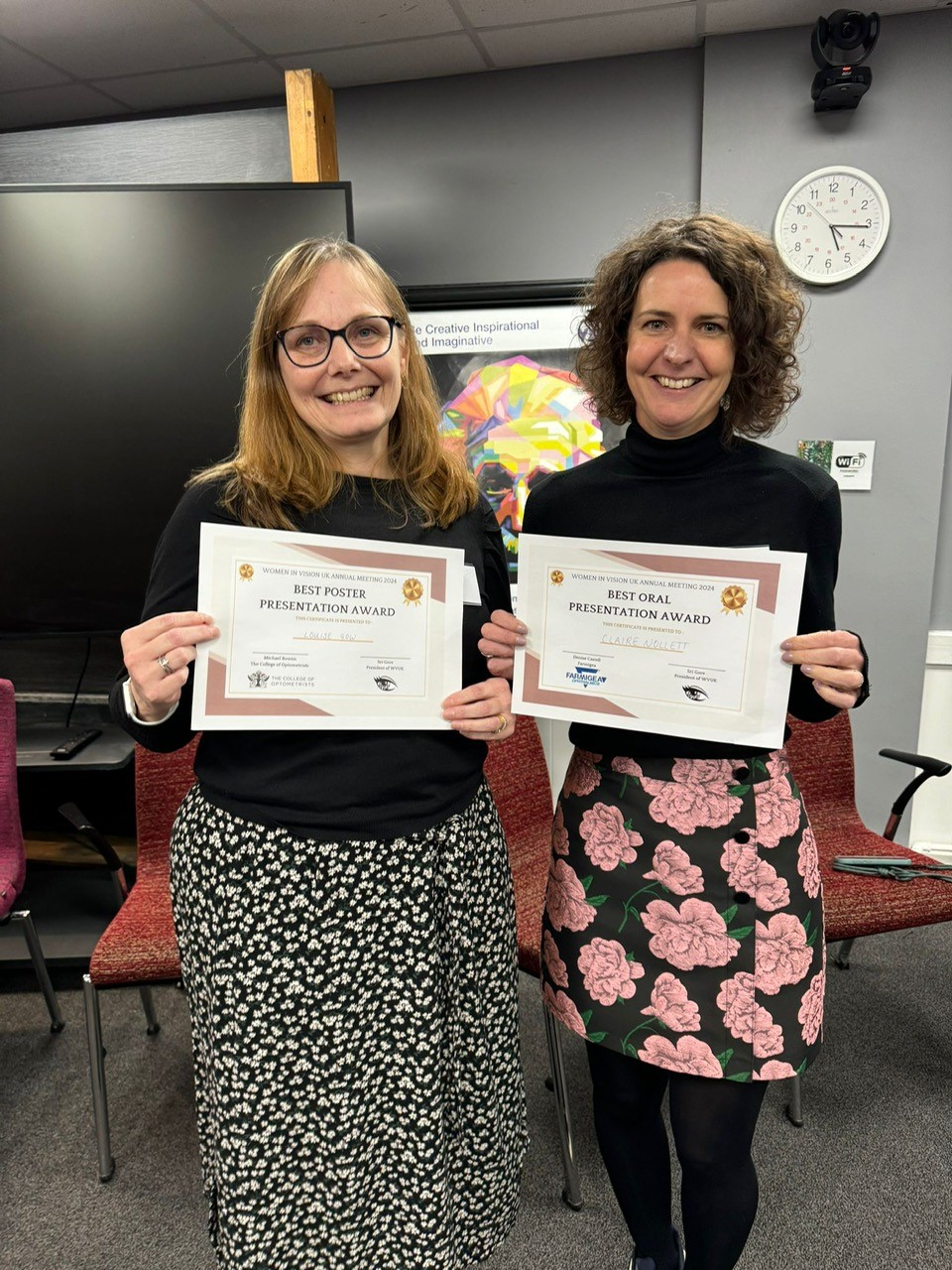Humanising health care: Sharing real life patient stories about vision impairment and depression with eye care students
13 February 2025
When asked which sense they would be most scared to lose, nearly 75% of people said their sight. It’s not hard to understand why. Most of us rely on our sight for our daily routines, learning, work and hobbies.
As a mental health researcher at Cardiff University, I’m particularly interested in understanding how sight loss affects an individual’s emotional wellbeing. For the last 15 years I have been researching ways to support the mental health of blind and partially sighted people via NHS, social care and charity sector services.
In my job at the university’s Centre for Trials Research, I am the Academic Lead for Public Involvement & Engagement. This means that I support our staff in involving the public (including patients) in planning and conducting our research. It’s vital that people with lived experience of a condition are part of our team, as they are the people our research will help; they make sure that we are answering the most relevant research questions.
Members of the public can also play an important role in educating our next generation of healthcare professionals. My previous research showed that whilst experiencing depression is common for individuals with vision impairment, the majority of low vision practitioners (optometrists & dispensing opticians) in Wales did not try to identify or discuss this issue with patients. Depression can interfere with effective vision rehabilitation and add to the disability of sight loss, so it is important that is addressed.
These findings lead to my latest project which I recently presented at the Women in Vision Conference in Bristol (November 2024). My talk explained the goal of my work, which was to create learning resources for undergraduate eye care students (optometrists and dispensing opticians) to educate them about depression and how to discuss it with patients.
I envisaged it would be much powerful for students to hear directly from patients: I interviewed four wonderful people who recounted their struggles with depression, their recovery and how eye care practitioners can help. With the assistance of Orchard, a local production company, we condensed each story down to 5 minutes of key messages for students.

The film clips were shared with educators on 8 eye care courses across the UK and shown to students in the 2024-25 academic year. Feedback from 234 students suggests they had an increased awareness of patients’ perspectives and experiences and they would be more likely to communicate about mental health and refer, signpost or offer support.

I was delighted to win the conference prize for Best Oral Presentation and to receive positive feedback and interest from ophthalmology, optometry and third sector colleagues. It was an ideal opportunity to raise awareness of the prevalence of poor mental health in blind and partially sighted people, to showcase the involvement of patients in education & research and to encourage colleagues to use our resources. They can be shared on request from nollettcl@cardiff.ac.uk
The full academic paper gives more details of the project.
With thanks to the service users at Camsight, my co-researcher Prof Keziah Latham, the Women in Vision organising committee, the College of Optometry for a travel bursary and the award sponsors.
- December 2025
- October 2025
- June 2025
- May 2025
- April 2025
- March 2025
- February 2025
- December 2024
- November 2024
- October 2024
- September 2024
- July 2024
- June 2024
- May 2024
- April 2024
- March 2024
- December 2023
- November 2023
- September 2023
- July 2023
- June 2023
- April 2023
- March 2023
- February 2023
- December 2022
- November 2022
- October 2022
- September 2022
- August 2022
- July 2022
- June 2022
- May 2022
- April 2022
- March 2022
- February 2022
- January 2022
- November 2021
- September 2021
- July 2021
- June 2021
- May 2021
- March 2021
- February 2021
- December 2020
- November 2020
- September 2020
- August 2020
- July 2020
- January 2020
- December 2019
- October 2019
- September 2019
- July 2019
- June 2019
- May 2019
- April 2019
- February 2019
- December 2018
- November 2018
- October 2018
- September 2018
- August 2018
- July 2018
- June 2018
- May 2018
- April 2018
- March 2018
- December 2017
- October 2017
- August 2017
- July 2017
- June 2017
- May 2017
- April 2017
- March 2017
- February 2017
- January 2017
- December 2016
- October 2016
- August 2016
- June 2016
- April 2016
- March 2016
- February 2016